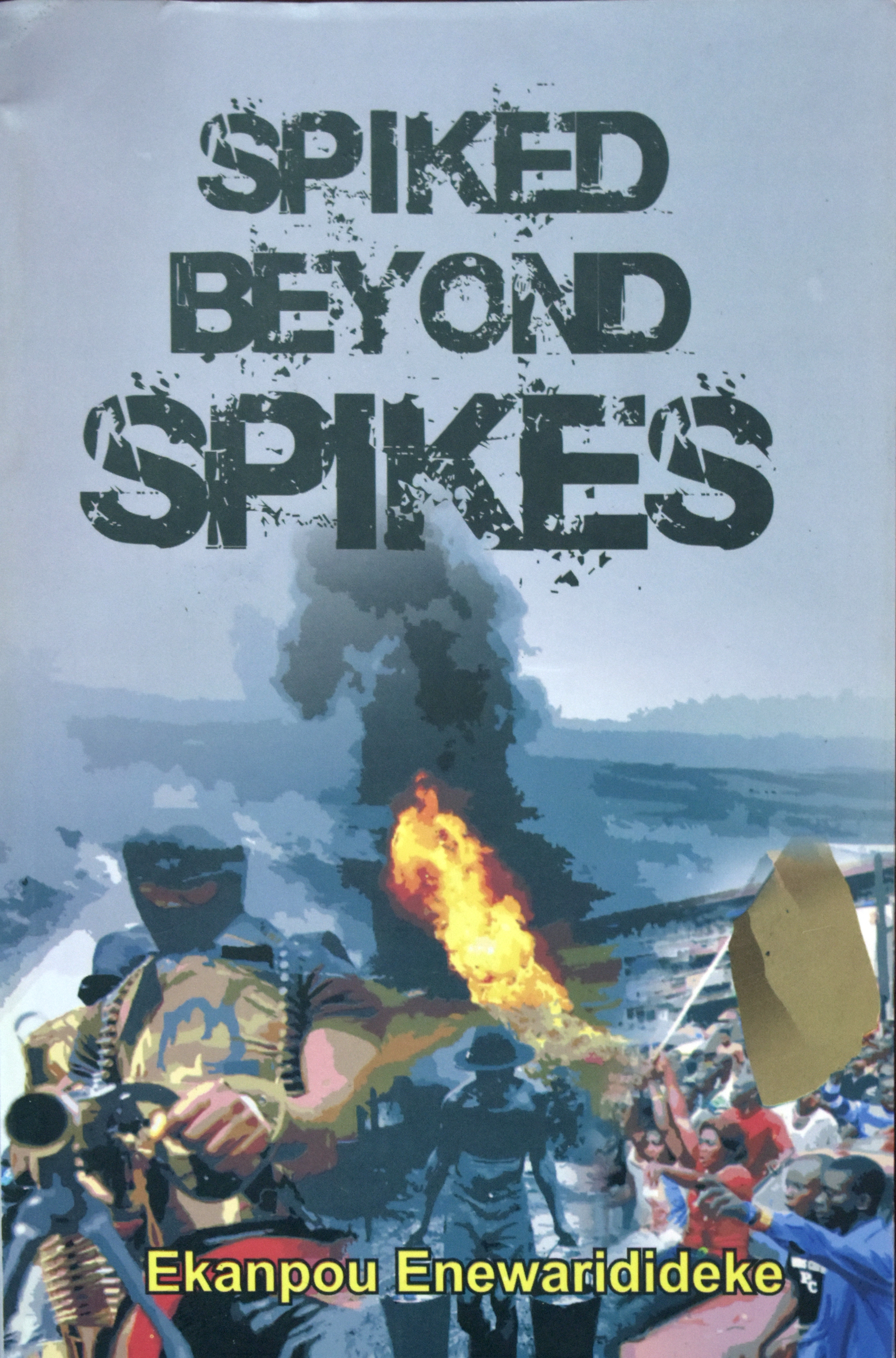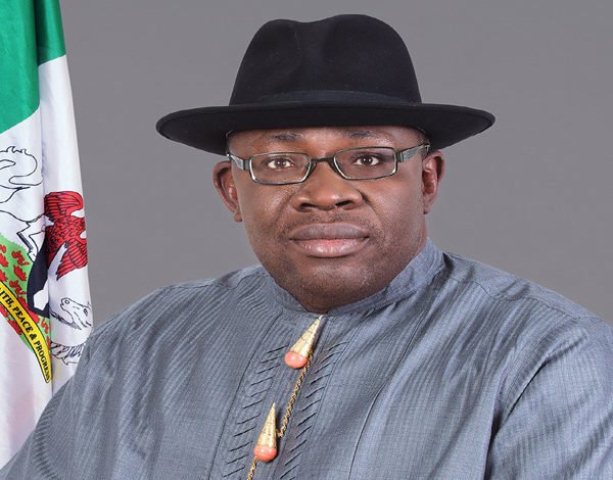By Damian U. Opata
“There comes a time in the life of a man when major decisions are made. When there is a seamless plot to beggar you into retirement from planet earth, taking major decisions becomes righteously unavoidable.
President Waibode has a grand plot to beggar the southern Oporozans into retirement from this earth … The lives of the Tobus have been reduced to the status of a fly subject to man’s whimsical annihilation. Because our lives are no longer safe in this country, we hereby declare unequivocally that we are no longer part of this country called Oporoza. We have decided to eke out a living under the roof of our own country called South Oporoza. Henceforth, we shall have no dealing with the northern axis of Oporoza. South Oporoza has become an independent country” (pp. 160 – 163).
In response the Federal Government of Oporoza declared total war on South Oporoza. As the reader is told:
A radio message wired to Alabeni indicated that the government of President Waibode had ordered deployment of amoured personnel carriers, artillery, warships and military attack helicopters. The infantry soldiers of North Oporoza had begun bombardment of the SOPMAM soldiers who had kept watch over the border between South Oporoza and North Oporoza.
The infantry soldiers were advancing ferociously with heavy artillery and armoured personnel carriers. A fierce battle had broken out between the infantry soldiers of North Oporoza and soldiers of Southern Oporoza Manumission Movement. The Amphibious Battalion of North Oporoza had similarly engaged the Special Marine Squad of SOPMAM.
The attack was fiercely launched against the forces of SOPMAM by the Amphibious Battalion on twenty warships. Not too long after the radio message of heavy bombardment of SOPMAM soldiers both on land an in water had come, military helicopters flew low over Akpare and began to wretch and vomit bombs in endless stream. Akpare and its neighbouring villages were being strafed by the Air Force of North Oporoza (p. 168).
Then, at the end of it all:
“My government is a new government with the mantra of reordering. I am determined to reverse all the losses suffered by the previous government but based on willing mutual understanding and cooperation. I hereby declare that there shall be no further war between the South and the North. Let the Grand Officer Commanding of SOPMAM call his soldiers to order. We are willing and ready to work with South Oporoza as an independent country and mutually explore possible areas of partnership for the economic growth of both countries … I am the President of North Oporoza newly sworn-in on the sudden death of President Waibode (p. 172).
These three excerpts from this new and amazing text, Spiked Beyond Spikes by Ekanpou Enewaridideke, capture the critical highpoints of this revolutionary novel powered by a passionate sectarian journalism and robust propaganda. The novel pulsates and seethes with a militancy and mystique evocative of the Niger Delta area of Nigeria which, as it is, happens to be the setting of the novel. It is a story of an oppressed and marginalized people in search of freedom and liberation. But it is also an affirmation that true liberation is best achieved through an ideological return to the roots, with its pains and attendant sacrifice.
The protagonist of the novel is Alabeni, the silent and unseen actor, a trained Nuclear Physicist that takes recourse to the dreaded Egbesu deity for the success of his revolution. A “born activist” (p. 137), a talented man and a “security czar” (p.27), and “the unbeatable hero of our manumissions’s struggle” (p. 173), among other praise names and descriptive labels righteously earned, Alabeni, probably a prototype and reincarnation of Isaac Adaka Boro, sets out to free his people, the Tobus, from the oppression and marginalization of a new regime in Oporoza, a regime headed by an apparently dictatorial President Waibode.
It is evident in the novel that President Waibode has succeeded in erasing the gains the Tobus made under Seride, the immediate pastof Oporoza. President Waibode is an Ekissa man from the northern part of Oporoza, whereas President Seride is a Tobu man from the southern part of Oporoza. During his regime, President Seride had taken actions to develop the neglected Niger Delta region of Oporoza.
Endorobou, a fiery journalist and commentator, a Tobu man himself, uses any opportunity that comes his way to catalogue the injustices unleashed on the people of the Niger Delta region by President Waibode.
These injustices are disturbingly many and varied, and include the following: the scrapping of the Maritime Surveillance Commission headed by Alabeni, the scrapping of Creek Development Commission, the scrapping of the Maritime University, Akpare, where the novel is majorly set, the scrapping of the Law School, and the stoppage of the North-South Road, all of which were being pursued by the immediate past administration of President Seride.
In addition, President Waibode had sacked the chairmen of three Boards: the Central Bank, the Maritime Surveillance Commission, the Creek Development Commission, all headed by Tobus of South Oporoza, and replaced them with Ekisas from North Oporoza.
To worsen matters, the government of President Waibode became intolerant of free speech, unleashes operation Lion Gore on the Niger Delta area of Oporoza, clamps Endorobou into prison, declares Alabeni, the people’s hero, a wanted man, rules the country dictatorially, has little or no respect for the ministers working with him, displays immense ignorance on the working of the economy, and is intolerant of suggestions that do not agree with many of his uninformed opinions. On a general note, the citizens of Oporoza are increasingly subjected to more hardship as inflation, joblessness, insecurity, kidnapping, mass killing of people by herdsmen, and unmitigated dictatorship take centre stage. The country becomes highly polarized.
Even steps taken to bring stability to the oil producing areas, such as the attempt to abort the sabotaging activities of the OZIDI BOYS, are not only mishandled but work to alienate the people of southern Oporoza from the government of President Waibode. Consequently, the people of South Oporoza, especially people of the Niger Delta are highly dissatisfied with Government.
This spate of disaffection has been greatly fuelled by Endorobou, a fiery and courageous who has selectively made use of historical and factual data from the vanguard newspaper to chronicle and expose to the people the injustices of past governments to the Niger Delta people in particular, and to the people of southern Oporoza in general. Alabeni cashes in on this situation.
It does appear that providence had prepared Alabeni for the revolutionary success he achieves in the struggle for the liberation of the Niger Delta. He is very popular with his people. This popularity stems from his sense of patriotism and benevolence to the people. When the government of President Waibode refused to clean up the oil spillage, claiming that it “was an act of sabotage which he would not condone or tolerate”, and when he “stopped the rehabilitation process” (p.84) already underway, the reader is told that:
The village became hopeless and helpless. Alarmed by the helplessness everywhere in Akpare, Alabeni decided to take care of the village. Old men, women, and youths were registered and placed on a monthly salary by him. It was the only thing Alabeni could immediately do to salvage the entire village from mass starvation and mounfe. The inhabitants of Akpare would have died for long but for the monthly largess from Alabeni. To the people of Akpare, Alabeni was their only God; they knew no God other than Alabeni (p. 83).
In addition to these provisions he made for the people of Akpare, it is reported that he not only ‘built and equipped’ the only cottage hospital in Akpare, but also extended free “medical services to all the communities in southern Oporoza” (p. 83). He went further to rehabilitate the “dilapidated secondary and primary school buildings” in the community (p.83).
He provided “additional training” to science teachers, paid them incentives, and offered scholarships to ‘exceptionally brilliant students” (p. 84). He had also “long built a massive Driving Institute in Zeneama”, his “grandfather’s village” (p. 85). From the foregoing, it is obvious that Alabeni had warmed himself to the people. And he had a good cause to fight, a fight that also included a personal bitterness against the new government from removing him as the Head of the Maritime Surveillance Commission, and declaring him a wanted man.
There is this popular slogan that it takes two to tango. The Government of Oporoza is also beset with very worrisome and challenging issues that even bother on the unity and survival of the country. No government anywhere in the world allows its powers to be undermined. But this is exactly the purport of the continued bombardment of oil installations and flow stations in the Niger Delta. The gory picture of bombardments of oil installations is revealed in the following excerpt.
For over two weeks, there had been a sustained attack on oil and gas installations in Oporoza. One hundred flow stations and three crude oil terminals in Akpare had been bombarded. Workers on the flow stations had been hurriedly flown to Bekeama to escape the rampaging random bombardment of oil installations. For Forcados and Ofoniben villages, no flow station was spared; no single human being could be found in the flow stations as all the workers had deserted there in fear. Only soldiers could be seen in the flow stations doing security work … (pp. 101 – 102).
While this was going on, the propaganda dimension was also active in sensitizing the people to the alleged injustices of Government. However, the climax of this affront comes with the declaration of independence by the people of South Oporoza. However, it must be acknowledged that Alabeni did not go ahead to declare the independence of South Oporoza without seeking legal means of resolving the ensuing conflict between the government and the people under his leadership.
He goes as far as writing an open letter to President Waibode. In the open to the president, which was published in The Tempest newspaper, he declares: “I will not have a recourse to violence or war on account of the baseless allegation of fraud against me coupled with my illegal declaration as a wanted man. I am willing to come out and defend myself in any court of law if I am arraigned because I am not a criminal … Mr. President, I shall come out to face justice the moment due process is followed” (p.119). It is when he does not receive any favourable response; indeed, any type of response from Government that he declares South Oporoza a free and independent country.
It is obvious that Alabeni had long planned for this course of action. He had also prepared and armed himself mystically for the struggle. Indeed, this preparation was traumatic for him and his family because he had to swear to an oath before the Egbesu shrine that he must separate from his family for his venture to succeed.
The added dimension to this is that he was also sworn to not letting any person know of this sacred oath at the shrine of Egbesu. Neither his wife and children, nor his parents were to know why he was abandoning his family. The Chief priest of Egbesu tells him:
‘Take this onguo of Egbesus sacred water; it is from me the Chief Priest of Egbesu. This pot is usually given to pure intentioned voyagers as their dedicated supportive angel. My son, put this pot of water into any positive use of your choice but you must always keep the sacred unspoken oath whispered into your left ear. Egbesu sees your heart and the voyage ahead of it. No words are needed from you. Leave the shrine now!’ (pp. 17 – 18).
When President Waibode sent out a crack team from drawn from a combination of all the armed forces in North Oporoza, it would have been expected that the people of South Oporoza and its leadership, Southern Oporoza Manumission Movement, SOPMAM, for short, would be completely vanquished. But this does not happen. Indeed, the entire narrative of the ensuing war between Alabeni’s forces and those of the Government of North Oporoza seems like a tale of mystery and uncommon valour. The narrative voice informs the reader thus:
None of the bombs vomited [by the Air Force of North Oporoza] detonated. Soldiers of SOPMAM had broken into Egbesu war songs in lineal procession of two in Akpare. They sang and danced in anticipation of order from Alabeni.
The aerial bombardment continued for two days. Occasionally, the military would disappear from the airspace for minutes and suddenly appear with a viciousness that had acquired more viciousness in their aerial annihilation. On the third day Alabeni wore immaculate white apparel of Egbesu and walked across Akpare three times mumbling something nobody could grasp; he also had a white flag in his right hand which flailed from time to time. After this ritual of mumbling and flag-flailing, Alabeni ordered the SOPMAM soldiers to respond to the deadly aerial bombardment of the military helicopters (p. 169).
The effects of the response by the soldiers of South Oporoza are fata, total, deadly, and irreversibly devastating on the soldiers of North Oporoza. The casualties recorded by soldiers of North Oporoza are as surprising as they were hitherto unimaginable. The soldiers of South Oporoza “had gunned down five military helicopters” (p. 169).
“Dead bodies [of the soldiers of North Oporoza] littered the land. All the twenty warships had been mercilessly sunk by the soldiers of SOPMAM … However, a census quickly conducted after the attack on all fronts revealed that no soldier of the Southern Oporoza Manumission Movement died in the attack. Egbesu did not abandon them” (p. 169). This is fiction stranger than fiction: no casualties, human and material, recorded by a quickly put-up revolutionary movement, a record of monumental success unequalled in any known historical revolution, and for that matter, in just four days.
As if this were not enough, President Waibode suddenly dies. Information from BBC has it that he “had cardiac attack and died soon after he was briefed that all the soldiers deployed to pulverize the southern part of Oporoza died” (p. 177). He is succeeded by President Tebekone, formerly Mr.Waibode’s Vice-President. In his “maiden national broadcast” (p. 172), he concedes defeat, and brings the short lived war to an end.
In addition, the new President pledges that “southern prisoners held in North Oporoza would be released as a demonstration of his mantra of reordering” (pp. 172 – 173). Undoubtedly, this is nothing but sheer surrender to the forces of South Oporoza. It is obvious that President Tebekone does not want to die of heart attack as his predecessor in office.
It is a solemn but joyous Alabeni who returns victorious. Despite the death of some major actors who were “injected to death” (p. 213) in prison, there was wide jubilation everywhere. Yes, Alabeni had lost his father and mother during the period of his isolation, and the wife had been so traumatized as to become temporarily insane, it was, after all, a happy ending.
“For a people so malevolently spiked, bombed, chastised, humiliated, over their God-given crude oil resources, Alabeni was content that they had ultimately built the right personality, the right identity, the right image insensible to the perpetually poisoned spikes of the Ekisas – spikes now deadened beyond triumphalism-consolidated resurrection” Pp. 212 – 213).
All in all, Spiked Beyond Spikes is a well written text, one that is lavishly inter-textual, evoking as it does many great writers, national and international. It is a very captivating text. The various sub-plots of family life of the Alabeni family, of the love life of Endorobou the fiery journalist, as well as the cultural episodes and fiestas portrayed here and there in the text all combine to make the novel a rich readerly text. Very importantly, parts of this revolutionary noveI constitute good philosophical reflections that suggest some form of indigenous cultural resurgence.
The rich and varied imagery drawn from nature and replete with riverine evocations do good service to the setting. It is a marvelous feat that the narrative achieves a great deal of historical distanciation despite its apparent concern with contemporary political / economic turbulence of the Oporozan nation, that is, of the Nigerian nation.
I strongly recommend this novel to the reading public and for use in teaching revolutionary literature in higher institutions. Finally, I heartily congratulate the author for the creative dexterity he has deployed in writing a great novel.
Share your story with us: 08030891146 (Whatsapp and SMS only) Email: info@gbaramatuvoicenews.press or gbaramatuvoice@gmail.com. You can also download GbaramatuVoice news app from Google playstore.
Support Quality Journalism in the Niger Delta Region
Join us in our mission to bring development journalism, cultural preservation, and environmental awareness to the forefront. Your contribution makes a difference in the lives of the people of the Niger Delta. Donate today and be a part of the change!









Leave feedback about this
You must be logged in to post a comment.